Soccer newsletter: Parity helping Liga MX, but is it hurting homegrown talent?
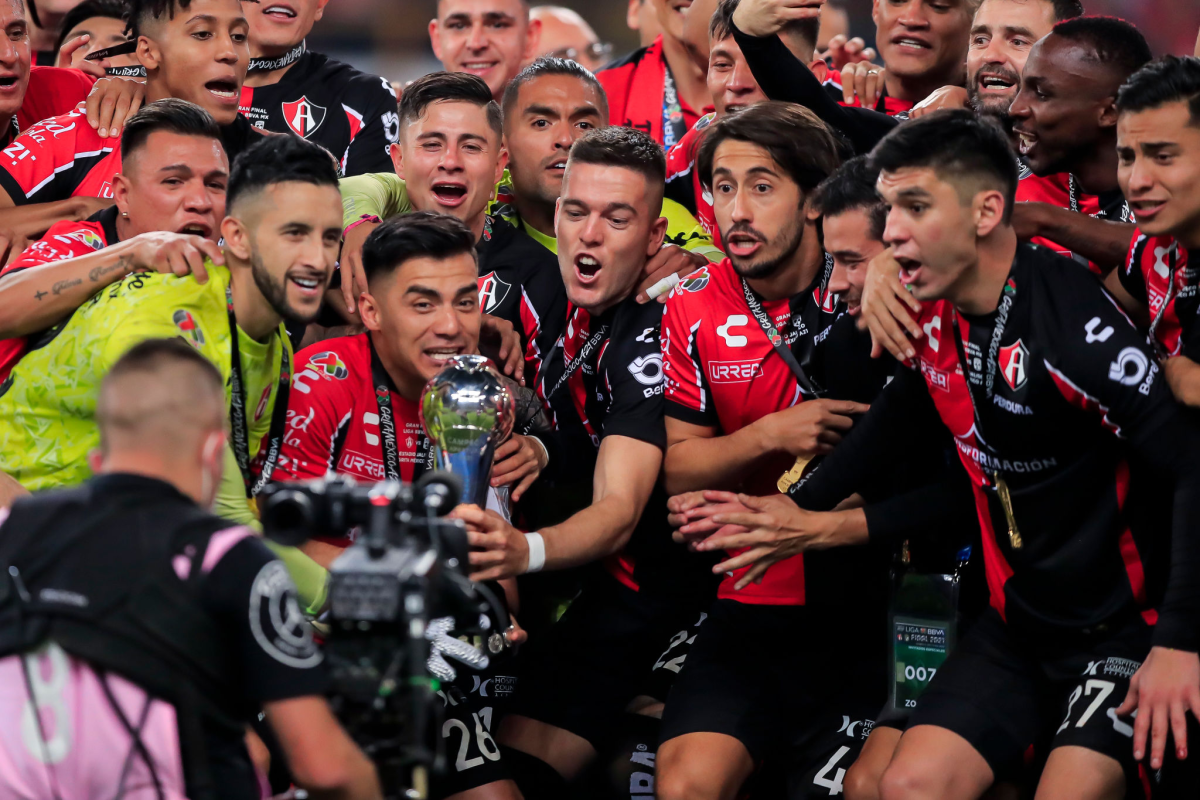
- Share via
Hello and welcome to the L.A. Times soccer newsletter. I’m Kevin Baxter, the Times’ soccer writer, and we start today with the championship finals of North America’s two biggest leagues, which were both determined over the weekend.
In Mexico’s Liga MX, Atlas prevailed over León on penalty kicks during Sunday’s second leg of the two-leg final, while in MLS, New York City FC won its first title on penalty kicks after playing the Portland Timbers to a 1-1 draw over 120 minutes. But what to make of those two results?
In the last decade MLS, a league supposedly built to encourage parity, has had two repeat winners and eight champions overall. The 20 berths in the Cup final over that time have been shared among 11 of the league’s 27 teams.
Compare that to Liga MX, a league that for a long time was top-heavy with big-budget teams like Club América and Chivas. However, its last 10 championship finals, dating to the 2017 Clausura, have produced just one repeat winner, Tigres, a three-time champion, and half the 18 teams have appeared in at least one final. For both of this year’s champions — Cruz Azul in the spring and Atlas in the fall — the titles marked their first this century. For Atlas, the crown was its first in 70 years.
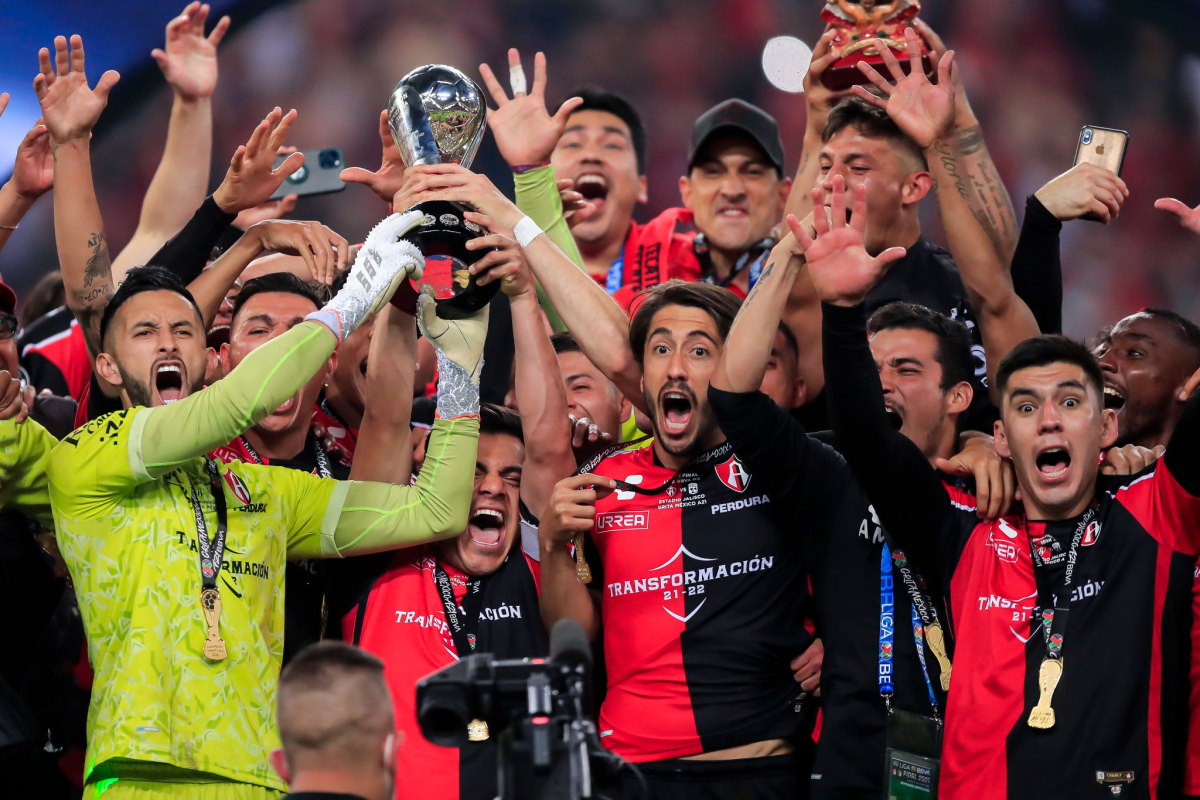
For Liga MX President Mikel Arriola, the fact that every team now has a legitimate shot at playing for a title has made Mexican soccer more compelling.
“In Europe, you can wait to see the papers on Monday, but you already know who is in the top,” said Arriola, and God bless him for thinking people still wait for the morning newspaper to check the standings.
In Germany, Bayern Munich has won nine straight titles; in Italy, Juventus has won nine of the last 10; and in France, Paris Saint-Germain has won seven of the last nine.
“In Mexico, it doesn’t happen that way,” Arriola said. “Mexico is a very interesting tournament from the beginning to the end.”
And it’s getting more interesting with the return to prominence of popular, but typically unsuccessful teams, such as Cruz Azul and Atlas.
“Now you have strong teams such as Tigres, such as León, such as Atlas, that are very representative,” Arriola said. “Then you have a big team, such as Pumas, that had not a very good season in the last tournament. So the interest is there.”
In other words, no one knows the result until they play the game.
But Mexico’s newfound parity coincides with an influx of top-flight foreign talent to the league. This fall, for example, 15 of the top 17 goal-scorers in Liga MX were foreign-born. Eight years ago, six of the league’s top 10 scorers were Mexican.
“The status of our league is that it is a league that buys players,” Arriola said. “We are a buyers’ market, different than Argentina or Brazil or Colombia or Ecuador. They are net sellers of players.”
If that has paid dividends for Mexico’s domestic league, however, it appears to be having a detrimental impact on the national team, which hasn’t been able to fully rejuvenate a roster that was the second oldest in the last World Cup in 2018.
This year, for the first time in history, Mexico lost three times to the U.S. and it hasn’t beaten anyone, anywhere since mid-October. El Tri will resume World Cup qualifying next month standing third in the eight-team table, with only a goal-differential advantage over Panama allowing it to maintain its hold on an automatic berth to next year’s tournament in Qatar.
“In results and performance, it is the worst year of my tenure,” national team coach Tata Martino said last week.
To fix that, Arriola would like to see Mexico send players to European academies at a young age, before they sign with Liga MX teams. That’s the path teenager Marcelo Flores took, joining the training program at Ipswich Town at 13, then moving to Arsenal’s U-18 team in 2019.
But Flores, who made his national team debut with Mexico last year, isn’t a normal Mexican player, having been born in Canada to a father who managed the women’s national team in the Cayman Islands. More typical is the experience of veteran forward Raúl Jiménez, whose 28 goals is tied for most among active players on the national team.
Jiménez spent his first four years as a professional with América before jumping to Europe, where the competition made him better. But the move has also taken him away from the Liga MX, which filled his spot with a foreign-born player.
“My school of thought is that it doesn’t matter the amount of players from other countries. What really matters is the competition,” Arriola said. “If you have good players here, Mexico, as we are now evidencing with the Olympics and under-17 [team], they will find a good place.”
In MLS, the foreign influence is even more profound: This year none of the top 11 goal scorers were born in the U.S. or Canada and just three of the last 16 league MVPs were eligible to play for the U.S. national team. So it was no surprise that New York City FC’s victory in Saturday’s title game had a heavy South American accent, with the only goals coming from Argentina’s Valentín Castellanos, the regular-season scoring leader, and Chile’s Felipe Mora.
Castellanos opened the scoring on a header in the 41st minute and Mora tied the game, knocking in a rebound four minutes into stoppage time with what was essentially the final touch before extra time. But the hero of New York City’s win was goalkeeper Sean Johnson, who made four saves in the game and two more in the penalty-kick shootout to give his team its first championship.
“It feels unbelievable to be able to call ourselves champions,” said Johnson, a 12-year MLS veteran who was playing in his first Cup final. “This journey was crazy. So many ups, so many downs. We talked amongst ourselves before the game and said it’s a massive opportunity to make it all worth it.
“This is what we live for, these moments. To be the MVP of the [MLS Cup Final], it means the world, but it means so much more to lift a cup for this club.”
New York had been playing elimination games since mid-October, needing to go unbeaten in its final six regular-season matches just to reach the postseason. And once there, two of their final three playoff games went to penalties, with Johnson making two saves each time to secure the win.
“No one said it would be easy,” Johnson said. “It’s been difficult, but that’s how it should be to win a championship.”
The MLS Cup final needed 120 minutes to get to the dramatic and deciding shootout, but with the Liga MX’s fall champion determined over two legs, the drama there unfolded over four days.
In the first game, at Nou Camp in Guanajuato, Ecuadoran winger Ángel Mena scored twice in the final 13 minutes of regulation to wipe out a one-goal deficit and send León to Jalisco Stadium for Sunday’s second leg with a lead.
Mena’s first goal came off an error by Atlas keeper Camilo Vargas and the second on a penalty kick in the dying minutes.
In the second match, Aldo Rocha scored in the 55th minute for Atlas to tie the series 3-3 on aggregate. With Atlas still ahead 1-0 after 120 minutes, the title was decided on penalty kicks. Jesús Angulo, Édgar Zaldívar, Christopher Trejo and Julio Furch scored to give Atlas a 4-3 shootout triumph.
Enjoying this newsletter? Consider subscribing to the Los Angeles Times
Your support helps us deliver the news that matters most. Become a subscriber.
Berhalter chasing history where his career began
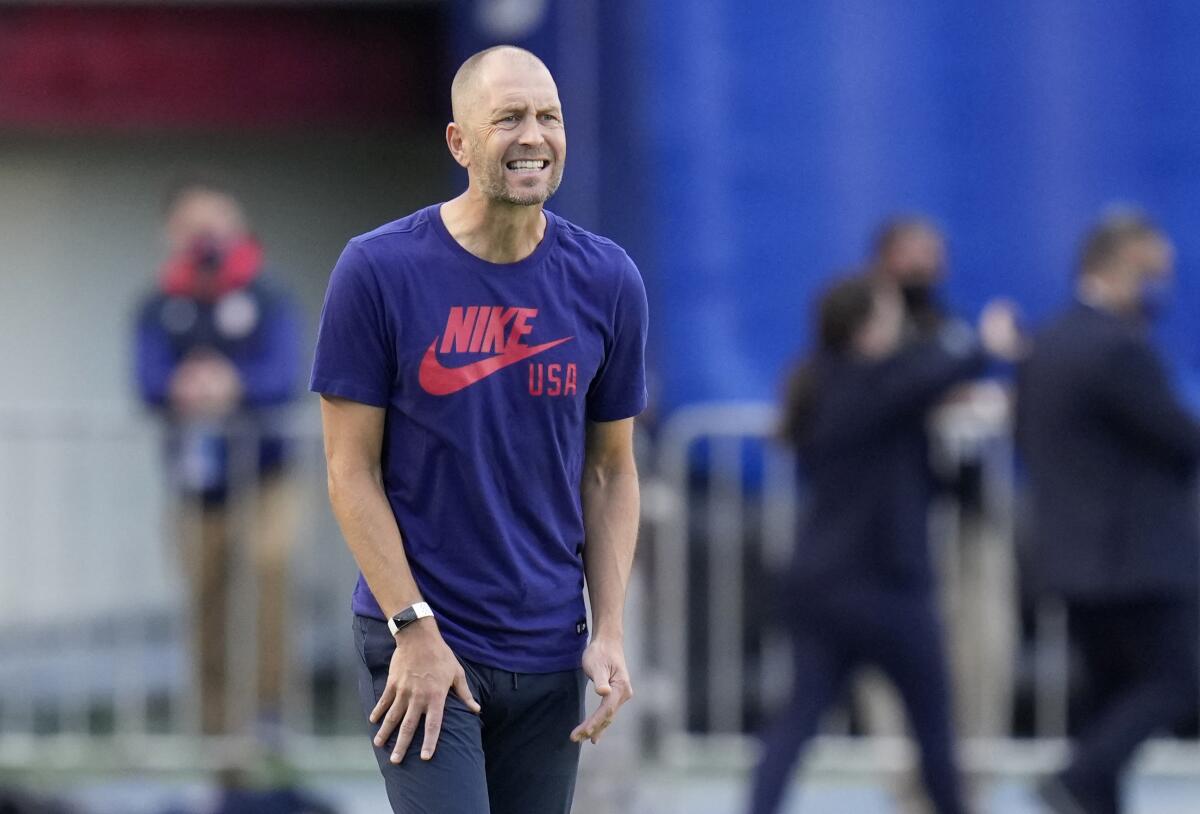
Gregg Berhalter got his coaching start as a player-assistant under Bruce Arena with the Galaxy in 2011. That team won the MLS Cup with Berhalter watching, in uniform, from the bench.
Ten years later Berhalter is back at Dignity Health Sports Park with a chance to make more history, this time as Arena’s successor as national team manager. A victory in Saturday’s friendly with Bosnia and Herzegovina, the final game of the year for the Americans, would make Berhalter the first coach in men’s national team history to win 17 games in one year.
That would be a fitting end to a year that has already seen his team win two trophies, in the CONCACAF Nations League and Gold Cup, while beating Mexico three times, something else that had never before been done in the same year.
“It’s been a good year so far, but it’s not done,” Berhalter said before the final training camp of 2021 opened in Carson earlier this month. “We have another game and we get to evaluate some new faces, guys we haven’t seen before that we’re really interested in working with, and then finally keep the core players of this domestic group moving.”
The camp roster is a heavily domestic one that includes some familiar faces from World Cup qualifying (Matt Turner, Walker Zimmerman, Kellyn Acosta and Ricardo Pepi), the return of some guys who missed qualifiers with injury (Gyasi Zardes, Aaron Long and Jordan Morris) and 12 players who are still looking for their first national team camp. That last list includes nine teenagers, among them Orange County SC defender Kobi Henry, 17, the youngest player called up, and Colorado Rapids defender Auston Trusty, who was summoned to the first camp Berhalter held in 2019.
With an average age of just over 23 years, the December camp roster is older than the one Berhalter used in qualifying, where the U.S. is 4-1-3 and in second place, a point behind Canada with six games remaining. The top three teams in the eight-team tournament earn berths in next November’s World Cup in Qatar.
The U.S. resumes qualifying next month, playing three times in a seven-day window against El Salvador and Honduras at home and versus Canada in Hamilton, Ontario, where the early forecast calls for subfreezing temperatures. The two U.S.-based games will also be played in frigid weather in Columbus, Ohio., and St. Paul, Minn.
In 2017, under Arena, the U.S. played its first qualifier of the year in San Jose .
“Minnesota and Columbus popped out from a travel and field standpoint and weather,” Berhalter said. “Just think about it. If it’s tough for us, and we have guys playing in Europe, in cold weather, what’s it going to be like for Honduras, who’s coming from Honduras midweek, coming from 85-, 90-degree temperatures to go to Minnesota?
“So we see that as an advantage for us, honestly. And qualifying is about winning games and about qualifying.”
And if the cold weather is inhospitable for the visiting players, Berhalter is hoping it will be even worse for their fans.
“We want a pro-U.S. crowd,” he said. “You have seen what a pro-U.S. crowd does for the boys, so we now start having to weigh the risk of the weather, extreme weather. We know a large portion of our guys are playing in Europe, they’re playing in cold weather right now. They’re coming back to cold weather. They should be able to adapt pretty nicely.”
Lloyd: NWSL has long needed structural change
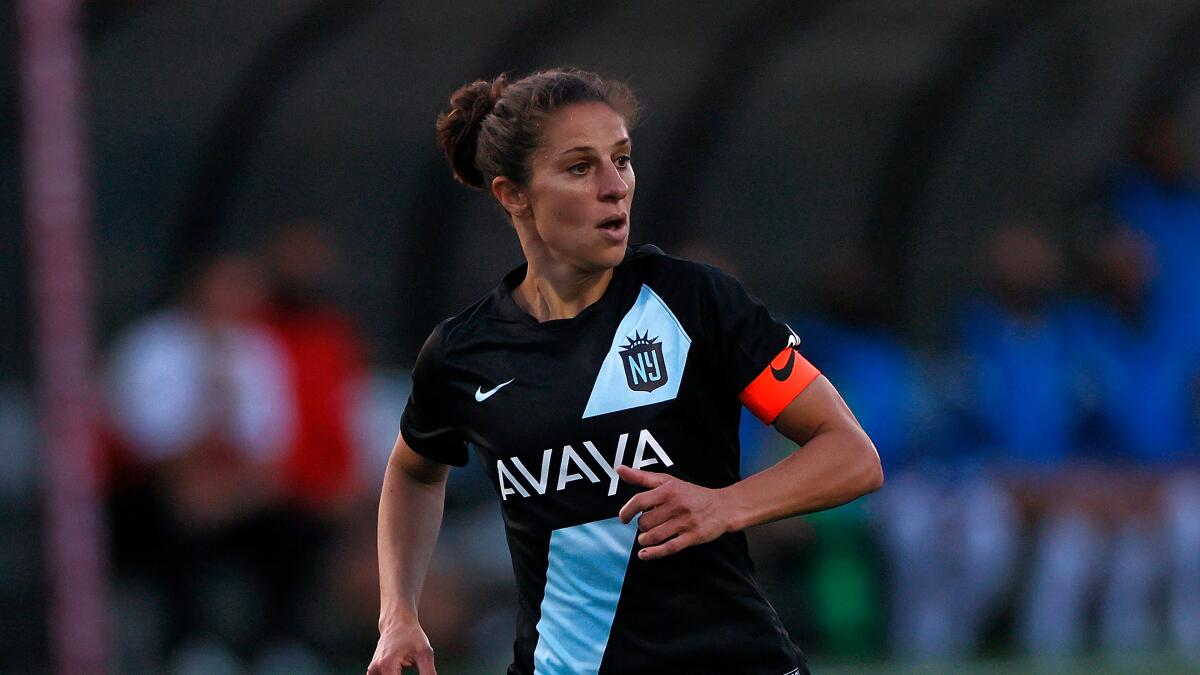
The crisis continues to deepen for the NWSL, which saw the Chicago Red Stars announce the departure of coach Rory Dames in a midnight statement 36 hours after the team lost in the league championship game last month and just hours before a Washington Post story broke detailing complaints from Christen Press and other players of verbal and emotional abuse.
Dames, Chicago’s manager for 11 seasons in the WPSL and NWSL, was the fifth male NWSL coach to resign or be fired amid abuse or misconduct investigations this year. Three other coaches resigned to take other jobs and one was re-assigned to a technical role, leaving Houston’s James Clarkson as the only NWSL coach still in the job he held on opening day.
Carli Lloyd, who retired this month after a 17-year career, including playing for two NWSL teams, said the league needs to be restructured if it hopes to survive.
“This reset, this needed to happen when [the league] started,” she said. “The only way you can put together a good business model is by putting the right people in place. Putting people with knowledge in place, with experience in place.
“You can’t take shortcuts. If you have the long-term approach and you stay true to doing things the right way, eventually it’s going to be a good model. But that was never done.”
Lloyd said the NWSL was built on a shaky foundation, with U.S. Soccer rushing it into existence in 2012 following the collapse of Women’s Professional Soccer. In the Post story, for example, several players said the federation ignored or dismissed complaints over Dames’ actions dating to 2014, the league’s second season.
U.S. Soccer has retained former U.S. Attorney General Sally Yates to lead an independent investigation into allegations of abusive behavior and sexual misconduct in NWSL.
“It’s thrown together. You’ve got [U.S. Soccer] managing it. You’ve got a couple of people that work in the league. And then you’ve got whomever as an owner that just come in and say ‘Hey, I’ve got money’ and [it’s] oh sure, here you go. You can have a team,” Lloyd said.
“Where’s the vetting process? Where are the standards and policies that these owners have to abide by? Who’s vetting GMs? Who’s vetting coaches?”
The apparent answer is no one. But Lloyd, who said she would be interested in staying in the game, perhaps as a sporting director for an NWSL club, pushed back on the idea, raised in this space and elsewhere, that appointing former women players to positions of authority is necessary to get the league back on track.
“Of course you want to see more women hired, you want to see more women with opportunity,” she said. “But you want to ultimately see the best person hired, no matter who it is.”
Last month, as the scandals were breaking, NWSL Commissioner Lisa Baird and Lisa Levine, the league’s general counsel, resigned under fire. Two weeks later longtime sports executive Marla Messing, who served as vice president and executive director of the 2024/2028 Los Angeles Olympic and Paralympic Bid Committee and president and CEO of the 1999 Women’s World Cup, was named the league’s interim commissioner.
Calling all Angels
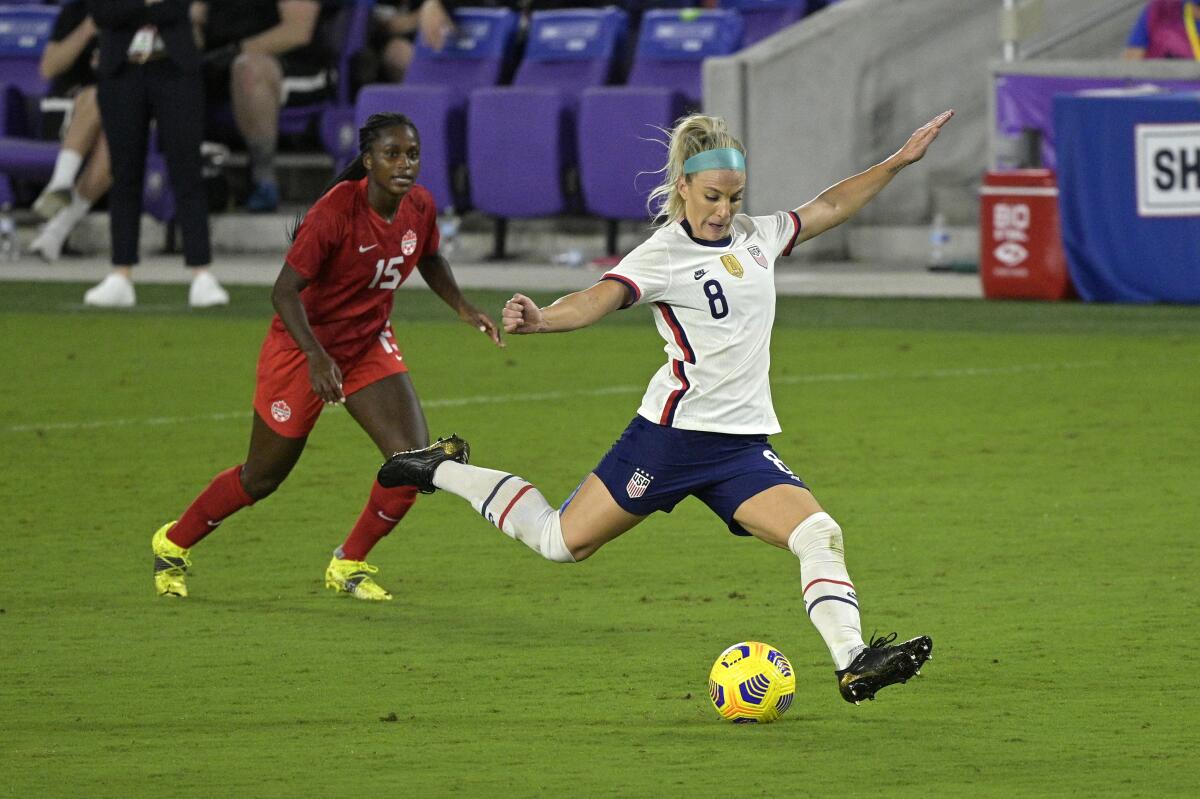
Speaking of the NWSL the league’s two newest teams, Southern California neighbors Angel City and the San Diego Wave, are already making news despite the fact neither has played a game.
Angel City signed Press, a star forward on the national team, to the richest contract in league history in August but has begun building the rest of its roster around defense, acquiring the rights to defensive midfielder Julie Ertz, a two-time World Cup champion, and signing defender Sarah Gorden following a trade with the Chicago Red Stars. It has also acquired the rights to defender Mary Alice Vignola from the Washington Spirit.
The Wave made Abby Dahlkemper, a national team center back, its first signing last month, then added a trio of internationals in forwards Katie Johnson (Mexico) and Jodie Taylor (England) and goalkeeper Kailen Sheridan (Canada) in filling six other roster spots.
San Diego announced its biggest addition Monday, signing three-time World Cup champion forward Alex Morgan.
The teams will continue building out their rosters during Thursday’s expansion draft and Saturday’s league draft. Both drafts, which were to be held in Los Angeles, will now be virtual events host by CBS Sports, NWSL announced.
“Due to the uncertainty of the public health environment, and out of abundance of caution,” a league statement read, teams will participate in the drafts from their home markets.
And finally there’s this…
Sophomore defender Simon Johansen scored in the 21st minute, accounting for the game’s only goal, to give Cal State Los Angeles a 1-0 win over Charleston (W.Va) in the NCAA Division II men’s soccer final in Colorado Springs. The national title is the first for the Golden Eagles (18-2-3) in soccer and the first in any sport since 1981. Charleston (19-2-3) beat Cal State L.A. in the 2019 final.
Quotebook
“In the end, if you keep believing, keep working hard and improve, you get what you deserve in the end. And this team, what they have done, they deserve to win MLS this year, and they did it. I’m unbelievably proud and grateful to be a part of it.”
Ronny Deila, New York City’s second-year manager, speaking to ESPN’s Jeff Carlisle after winning the MLS Cup on Saturday
Until next time...
Stay tuned for future newsletters. Subscribe here, and I’ll come right to your inbox. Something else you’d like to see? Email me. Or follow me on Twitter: @kbaxter11.
Go beyond the scoreboard
Get the latest on L.A.'s teams in the daily Sports Report newsletter.
You may occasionally receive promotional content from the Los Angeles Times.




